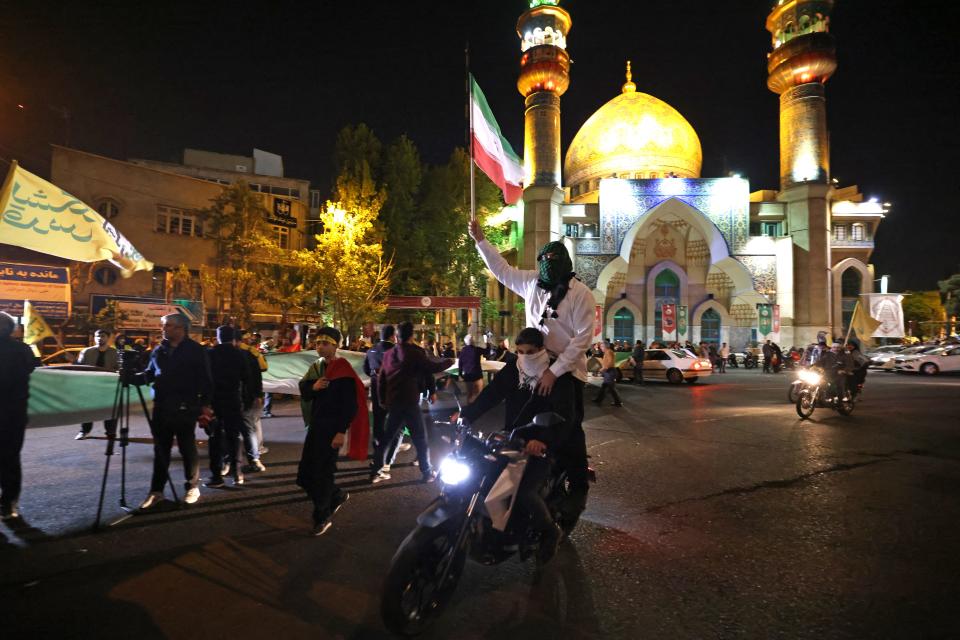Tibor Nagy: Diplomatic missions should never be attacked – no matter whose
As much as I detest the Iranian regime and their global aggression against our interests and Israel’s existence, I felt a visceral twitch when I heard of the April 1 Israeli attack which destroyed Iran’s Damascus consulate. Even though the attack eliminated a number of Iranian Quds force members – a group dedicated to Israel’s extinction - including a Senior Commander, I suspect every one of my diplomatic colleagues around the world, immaterial of their nationality or views on Iran, felt the same qualms. A few days later, on April 5, a similar but less fatal incident occurred when Ecuadorian security forces stormed the Mexican Embassy in Quito and arrested former Ecuadorian Vice President Jorge Glas who had been convicted of corruption and sought asylum in Mexico’s Embassy.

These aggressive actions should not happen – immaterial of how hostile the relations between the attacking party and the country the diplomatic premises represents, or the country hosting it. Immunity of diplomats and diplomatic establishments is one of the oldest principles in relations between nations, going back to antiquity and based on reciprocity. In addition to the people conducting diplomacy, where they do it from, and where they live in the host country, all expect and deserve inviolability. This benefits both the sending and receiving state, since each wants their diplomats and diplomatic premises protected. But this concept of “inviolability” of people and premises has also made diplomatic establishments attractive to prominent persons on the run from the law or mobs to seek protection in foreign embassies. In past centuries, with its recurring coups resulting in a revolving door of presidents coming and going, Latin America was a hotbed of leaders seeking asylum in foreign embassies. And it was in the new rulers’ interest to respect the sanctity of embassies offering refuge because they could very well be the ones seeking asylum down the line.
The most recent international agreements formalizing rules related to diplomatic immunity and the inviolability of diplomatic premises are contained in two treaties: The 1961 Vienna Convention on Diplomatic Relations (193 parties) and the 1963 Vienna Convention on Consular Relations (183 parties). One of the bedrock principles is that the receiving state is obligated to protect the diplomats and diplomatic establishments of the sending state. So, there is no question that Ecuadorian security forces had no right to invade the Mexican Embassy, and it is also perfectly understandable why Mexico cut relations with Ecuador. The international response was universal condemnation of Ecuador’s aggression.
But the Israeli action is murkier under the conventions – since it was a third state (Israel) attacking a diplomatic establishment (Iran’s) in Syria. Technically, the Syrian Government had an obligation to protect Iran’s diplomatic premises from all attacks, but realistically it could not do so given Israel’s capabilities. But even if international law experts hold that
Israel did not contravene the letter of the Conventions, is there any doubt that it broke the spirit that diplomatic establishments are inviolable? I recall the international uproar the US caused in 1999 when it bombed the Chinese Embassy in Belgrade, killing three Chinese journalists – at a time when US-Chinese relations were still friendly. The Clinton Administration explained that it was a mistake caused by faulty maps, but the Chinese didn’t believe us. I was Deputy Ambassador in Togo at the time and my own personal relations with Chinese colleagues went from warm to ice cold in a day.
My angst over Israel’s bombing was of course complicated by the deep irony that in 1979 the Iranian Government stood by when students overran our Embassy in Tehran and held our entire diplomatic staff – including some of my friends - as hostages under the harshest of conditions for 444 days. So, Iran’s loud protests over Israel’s attack breaking international law do contain a large dose of hypocrisy.
But, in my view, the principle that diplomats and their premises must not be attacked is sacrosanct. The US has 271 embassies and consulates in 173 countries with which our relations range from warm and friendly to frigid and hostile. For our own people to be able to do their work advancing and protecting American interests, they need to be assured that they, their families, and their premises are safe and protected – no matter how hostile the environment in which they operate.
On this issue, at least, I have no doubt that even our bitterest adversaries agree. China, for example, has even more diplomatic facilities than the US and their diplomats deserve the same protections as ours. There are good reasons why this principle has existed since diplomats, perhaps the second oldest profession, took the field, and it’s in everyone’s interest to keep it. Our world is dangerous enough – imagine how much worse it would be if diplomats were unable to practice their craft because of constant fears over their own safety. As Prussian General Carl Von Clausewitz said, “war is a continuation of politics by other means.” Diplomacy is one of the means to prevent war and other bad things from happening.

Ambassador Tibor Nagy was most recently Assistant Secretary of State for Africa after serving as Texas Tech’s Vice Provost for International Affairs and a 30-year career as a US Diplomat. Follow him on Twitter @TiborPNagyJr
This article originally appeared on Lubbock Avalanche-Journal: Tibor Nagy argues against attacking diplomatic missions after attacks

